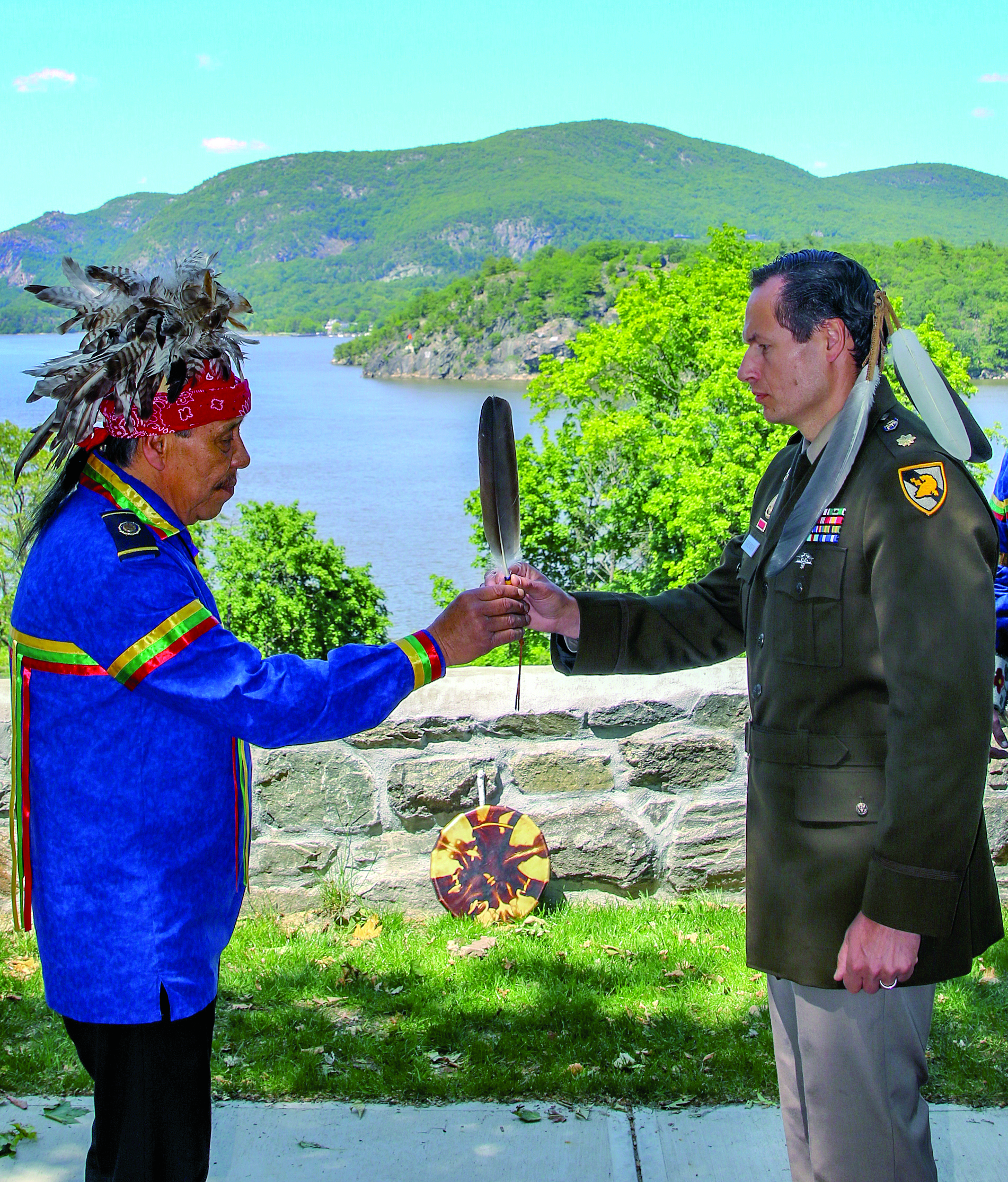Culture
Army says Tribal member can grow his hair and wear eagle feathers during official ceremonies

By Danielle Harrison
Smoke Signals editor
Tribal member and U.S. Army Maj. Patrick Sorensen is one of the first Indigenous men in the Army’s nearly 250-year history who is now allowed to grow out of his hair and wear eagle feathers in some official military ceremonies.
It was a long and sometimes tedious process to get the approval, which must be made through Army headquarters at the Pentagon.
“To the best of my knowledge, I am the second Native American man in the Army that has received a waiver to the male grooming standards so I can grow my hair,” Sorensen said.
He first became interested in pursuing a religious grooming code accommodation after attending a national American Indian Science and Engineering Society conference. At the time, Sorensen served as the Native American Heritage Forum officer-in-charge for the U.S. Military Academy West Point and attended the conference for recruiting purposes.
“(After) I first learned that the Air Force Indigenous Nations Equality Team was making headway with this hair waiver for their service members, I knew right away I needed to request a waiver, as well as try to expand the waiver to include the wearing of eagle feathers, which is an important part of being a warrior,” he said. “I also knew that as a field grade officer I needed to make myself available as a resource for other Native Americans in the Army, to help them through the process of seeking accommodation for their traditional Indigenous grooming practices.”
Sorensen requested the waiver through the Office of the Deputy Chief of Staff in October 2022.
“Allowing my hair to grow will allow me to grow stronger in my relationship with the Creator,” he said in his request letter. “Long hair serves as an outward symbol of spiritual growth in my Native American ancestral tradition. … I believe that growing my hair will give me strength to move on from the loss of two soldiers that I experienced during my combat deployment to Kandahar City, Afghanistan. … In my culture, hair may be cut during times of mourning or loss. It is customary to allow the hair to grow again, after the grieving period is complete, as a symbol of regrowth and new life moving forward.”
Sorensen noted that the wearing of eagle feathers is customary in Tribal religious ceremonies and other cultural events.
“Wearing of these eagle feathers should be allowed with the military uniform, as they are a religious article of strength for the warriors, and of critical importance to honor our dead warriors during military ceremonies,” he said.
Sorensen received his approval letter in May, which states his accommodation is valid throughout the rest of his Army career.
The first official military ceremony he attended after his waiver was approved was the West Point Eagle Feather Ceremony for Indigenous cadets.
“Growing my hair is important to me because it is a daily reminder of growing past my losses, dedication to God, the creator, and is the physical device necessary to wear my eagle feathers properly," Sorensen said in a West Point Public Affairs Office article. "What I didn't realize was that this accommodation request process would open the door to conversations and opportunities to share my story with others. This has become the greatest aspect of my healing process."
Sorensen, 42, who has served since 2006, has since transferred from West Point to his new duty station at Joint Base Langley-Eustis in Hampton, Virginia.
Sgt. 1st Class Anthony Hewitt, who works in Army media relations, provided Smoke Signals with the following comments regarding the waiver approval.
“In accordance with Department of Defense and Army policy, the Army has a deliberate process that evaluates each request on a case-by-case basis,” he said. “While we cannot speak to the specifics of any particular case, a religious accommodation will be approved if it is determined that the request is based on a sincerely held religious belief and a less restrictive means exists to further the Army’s compelling governmental interests. The Army strives to ensure soldiers have every opportunity to engage in their religious practice while serving in the U.S. Army."
Hewitt declined to confirm whether Sorensen was the second-ever Indigenous man to receive a waiver, citing privacy concerns, but did confirm the Army has approved 14 Indigenous religious accommodations, the first in 2018.
Sorensen is grateful to be able to continue his career with the Army while remaining true to his Indigenous roots.
“I’m really excited and so happy about this,” he said. “It’s just a sense of extreme joy. There were some hiccups along the way, but now I can help other people who want to do this, too.”
Includes information from a West Point Public Affairs Office article.
